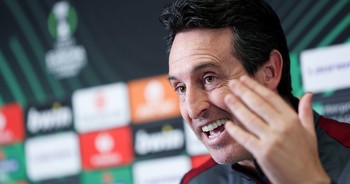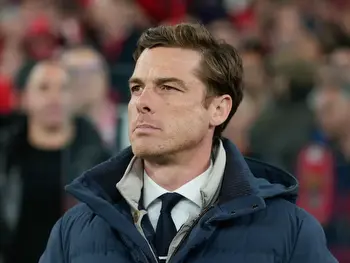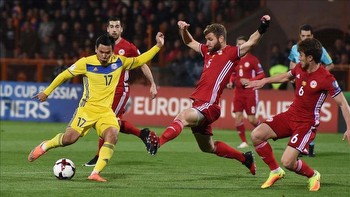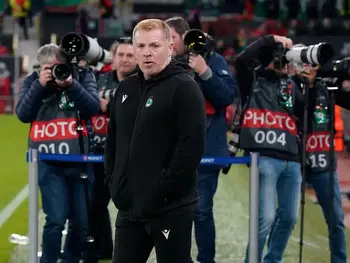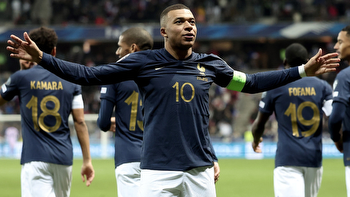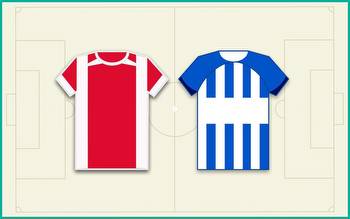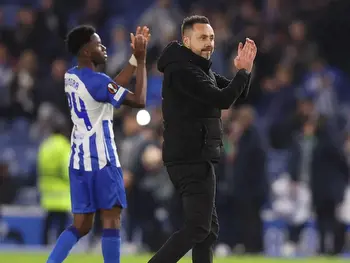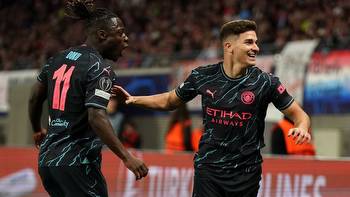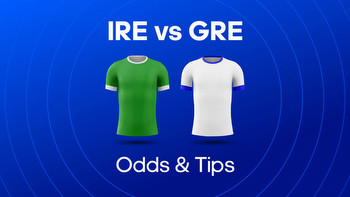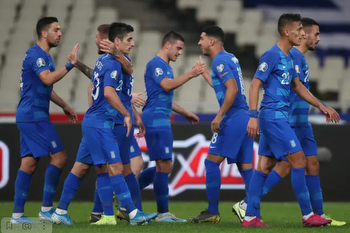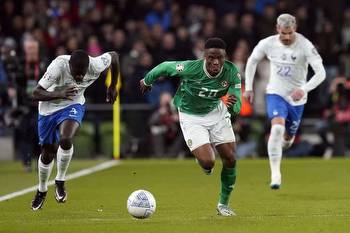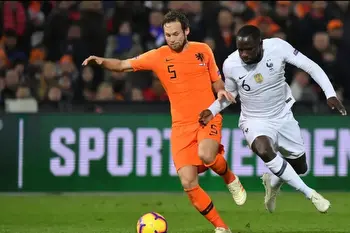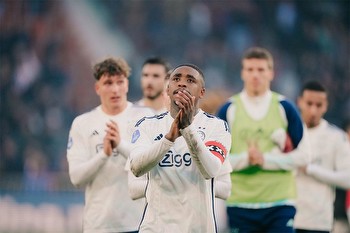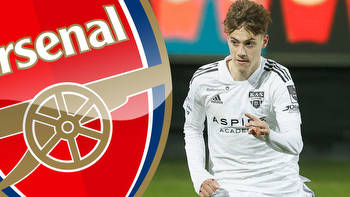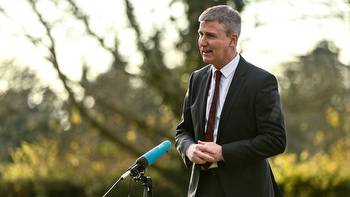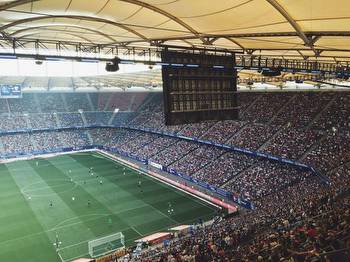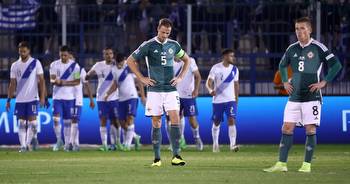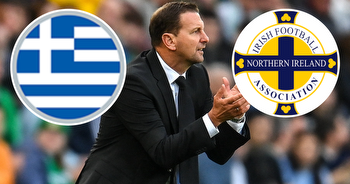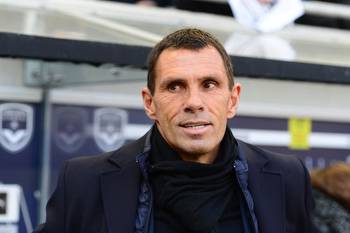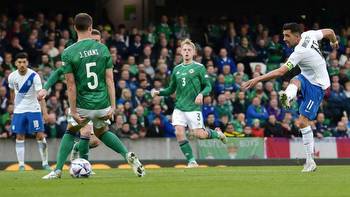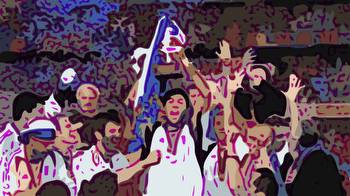Hellas reborn? Greece assistant coach Gerard Nus aiming to conquer a 10-year exodus
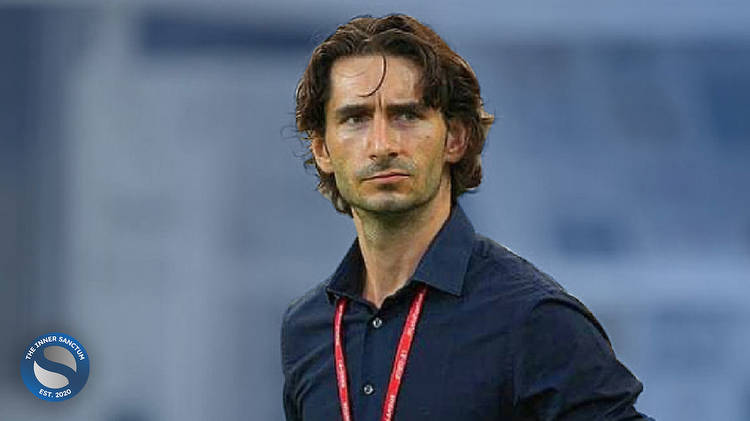
When Greece and football are mentioned in the same sentence, there is a plethora of history and traditions that spring to mind.
The nation’s first and only representative in a European Cup final containing Panathinaikos, a 64-year wait to appear at a World Cup in 1994, and the spectacular theatre and passion the Greek supporters display are some to name.
None of that eclipses their remarkable triumph in Euro 2004 as they completed one of the sport’s most remarkable underdog stories masterminded by legendary German tactician Otto Rehhagel.
That improbable piece of silverware could have been the catalyst to kickstart a new era in Greek football, but despite qualifying for a further two World Cups, the country has had little to cheer about since reaching their last major tournament in 2014.
Financial difficulties accompanied by a lack of youth development and an inconsistency in qualifying for the UEFA Champions League have led to other European nations overtaking.
Seven coaches have come and gone in less than a decade since John Van’t Schip’s departure in 2021, and that’s when experienced Uruguayan Gus Poyet was called to provide much-needed stability.
Supporting him is assistant coach Gerard Nus, previously employed in the same role with Melbourne Heart for one year as well as being appointed youth coach and working with the first team for Liverpool in the English Premier League between 2007 and 2010.
Holding their own against heavyweights France and Holland during Euro qualifying with a Nations League playoff as a safety net, Greece are inches away from returning to the European stage.
Speaking exclusively to The Inner Sanctum, Nus explained how the national team job came about and what attracted him to join.
“First of all, the opportunity arrived because of the relationship with Gus Poyet which I already had experience working with at Brighton and Hove Albion,” Nus told The Inner Sanctum.
“We kept in touch when he received the contract for Greece and he thought that I could be someone who could help him based on our understanding of each other. I also had experience at international level working with Ghana, so that was also a benefit.”
Another country where Nus developed his coaching skills was Australia with Melbourne Heart (now known as Melbourne City) during the 2013/14 campaign, working with two separate coaches John Aloisi and John Van’t Schip, with the latter being replaced by Poyet in Greece.
The Spaniard shared his experience living in a new culture down under whilst also commenting on the quality of the A-Leagues.
“When I first arrived we didn’t do well and the results were not going our way, so that’s when the board decided to make a change and appoint Van’t Schip who returned after being the previous manager and set the foundations,” he said.
“Even when Van’t Schip wasn’t the coach, he still kept the relationship within the club as an advisor and someone who was overseeing everything from a distance.
“That was with one month to go until the end of the season and I started to get more involved as the assistant, so that was the story behind it all.
“Overall I have good memories from my time in Melbourne even though it was a strange season with the change of coach, results, and the new ownership with City Football Group, I was impressed by the level of the league despite not knowing what to expect,” Nus said.
Now, the 38-year-old is part of the coaching staff in one of the most intense and pressured environments in European football, where winning is everything for the Greeks.
In years past, the country has failed to nurture and develop promising talent through their academies and youth system, resembling an underwhelming generation.
Konstantinos Koulierakis (19) and Giannis Konstantelias (20) are two examples of future stars plying their trade in the Greek Super League with PAOK and receiving a chance to represent the national team, an indicator that Nus feels is a step in the right direction, notwithstanding the importance of improving the development.
“I believe that young players who do break through depends on multiple things such as good work ethic, a proper plan, good coaching, or even just luck.
“There are a few players with a lot of potential, but we want to see more players pushing to get into a position where they are good enough for selection, so we can never be satisfied.
“The two players mentioned (Koulierakis and Konstantelias) are very talented and have been part of our plans in the national setup who have had minutes and help the team, so we’re really happy with them.
“Hopefully we have even more players at that level or even higher to make it as difficult as possible for us to make decisions.
“We don’t see enough of the youth players coming through in Greece and being transferred to bigger clubs in Europe. This is a missed opportunity from a business perspective to sell young talent, meaning there needs to be a clear strategy.”
When asked if there is any scouting conducted to identify some young prospects scattered around various Greek clubs, Nus replied with an intriguing response.
“We want to believe that the best 18 to 20-year-olds are involved with the national team and are at a stage where they are ready to represent a top club,” he said.
“I don’t think we need to go through the lower age groups of the clubs in Greece because they have coaches there who need to get the best out of those younger players.
“What I mean by that is, yes, we keep an eye on the best players who are showing a lot of qualities, but we don’t need to pay too much attention considering the gap compared to the first team.
‘”It would be strange to call up someone from the under 18’s of a Greek club for example when we already have players playing in some of the top European leagues.
“The system places you where you currently belong, and it’s important to spend our time appropriately with the players who are with the best clubs and working with the best coaches. We need players who are the most prepared as we are on a mission to make Greece competitive and win games.”
When Greece discovered their fate for the Euro 2024 qualifying draw, many would have had very little faith in progression as they were paired with the Dutch and World Cup finalists France.
However, Poyet’s men have provided their nation with optimism and hope, equal on points with the Oranje and have produced some respective results going down both 1-0 to the two favourites in the group.
Despite an unfavourable remaining fixture, the UEFA Nations League playoff is a unique look-in at a potential return to a major tournament for the first time since the 2014 FIFA World Cup in Brazil.
Dissecting the journey so far, Nus shared his reaction to the initial group stage draw as well as how the squad has fared.
“As soon as we found out about the draw, we knew it was going to be an extremely difficult group having to play both France and Holland who are two top 10 nations in the rankings,” he said.
“I think we can come out of it in November knowing that we did a lot of positive things and overall we learnt a lot. An example of that was the 1-0 loss against Holland when we executed our plan for most of the match and improved compared to our previous match in Eindhoven (Holland) when we lost 3-0.
“The way the Nations League is structured now, it’s given a lot of reward for those who perform well and we are in a position now to enter the playoffs because we finished top of our group.
“We have to use the final game of qualifying against France as a momentum platform to keep developing the squad and to bring our ideas together onto the pitch.
The playoffs for Euro 2024 commence in March next year as nations such as Greece will learn their destiny. Nus is carefully looking ahead and analysing their next potential opponents.
“We are checking the potential teams we could face in March and as of right now, it looks like it will be Kazakhstan who have won five of their eight matches in qualifying and are only third in the group behind Slovenia and Denmark.
“We could be facing a team off the back of seven wins out of 10 so we must be careful because they play good football which means we need to arrive with the right approach.”
Brought up in a Spanish lifestyle residing in the glamourous city of Barcelona, the country has undoubtedly revolutionised the game with a focus on possession-based football.
How has Nus been able to transfer his knowledge to the squad and how does he envision Greece’s style of play on the pitch
“The manager is the one who makes the final decisions about how we want to play, but I try to bring many ideas that I have taken on board in my coaching career to the table. Very rarely do we not agree on tactics and preparation which is why we both get along very well,” he said.
“We are a team who like to have the ball and try to combine link-up play to connect going forward into the opposition box. We have a range of strategies such as overlap runs and switching the play which are two examples worked on in training.
“The key has been how strong we have been defensively and that started during the Nations League when we didn’t concede a single goal in four games. This hasn’t happened overnight and it’s taken a lot of hard work behind the scenes to build toward a solid structure.
“We tend to forget that it’s challenging to maintain a consistent unity for the national team because we don’t have the time day in and day out like club level so we’re very proud.”
One of the many reasons why we love football is the pure passion and devotion for a game that many associate with life and death. This is especially true in Greece, labelled as occupying one of the craziest and most epic atmospheres in the world.
Criticism and the willingness to win every game stem from that very passion, and Nus was quick to notice this as soon as he touched down.
“The atmosphere and support is absolutely massive. To witness some matches in the Greek Super League especially the derbies involving the likes of PAOK, Panathinaikos, Olympiacos, AEK Athens, and Aris is a surreal experience,” he said.
“Those types of matches mean so much to the fans and they often become tight and competitive as the noise within the stadium is incredibly intimidating for the opposition.
“That all translates across to the national team where there is an expectation to watch good performances and improve. We definitely use the energy from them during our home fixtures.”
Whether or not Greece ends up qualifying for the European Championships in Germany next summer, even the most diehard follower would admit that the problems within Greek football will take time to mend.
With time to process and break down multiple factors, Nus concluded by offering his thoughts on the future of Greek football.
“In some aspects, Greek football didn’t grow up in the same way as other leagues around Europe did. The past couple of years are a great example as there are no teams from Greece in the Champions League which obviously isn’t good because historically this was the opposite,” he said.
“Unfortunately the league is disappearing from the football map and this is something that needs to be corrected because it also has a ripple effect on the national team as we suffer the consequences.
“The passion within the country is still very high and it’s great that the interest will always be there, but I don’t think the Super League has grown to the same speed compared to other European leagues over the years and there is still a long way to go before Greece reaches the level they desire.”
